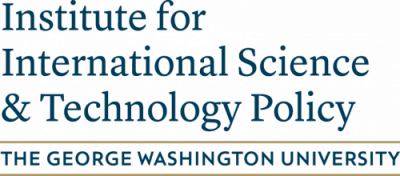
Is there a Space Policy Masters program at the Institute?
No, but students can specialize in space policy within the International Science and Technology Policy Masters program. (Your degree will say Master of Arts in International Science and Technology Policy.) The degree program requires 15 credits of a specialty concentration and many students do focus their concentration on space policy or other space-related matters. The Institute and the Master’s program maintain a close relationship with the Space Policy Institute.
Can I take electives in other programs?
Yes. Elective courses may include graduate-level courses offered through other Elliott School programs, departments in other GW schools, or a combination of the two.
Can I work full time while in the program?
Absolutely. All of our classes start on or after 5:00pm, which allows students to pursue careers and/or internships while they work towards their degree. In fact, many students work full-time at internships and full-time jobs while managing a 6-9 credit load each semester.
What do you look for in prospective students?
We take a holistic approach to a prospective student’s application. We look for students’ demonstrated interest in our program and clear career goals.
How long does it take students to graduate?
On average, MA students take two years to complete their coursework. Graduate Certificate students generally finish in one year.
I was accepted but I’m from outside the DC area and don’t yet have a job or internship in Washington. Can the program help me find opportunities?
Yes, the program frequently shares job and internship opportunities from many organizations in the DC area. The Elliott School Graduate Student Services Office also has opportunities and resources for students and we encourage you to reach out to their office as well.
Are there scholarship or funding opportunities available?
Fellowship and other student support is available on a case-by-case basis via the Elliott School and partner organizations.
Who should I contact for more information?
Please reach out to iistp@gwu.edu if you have any additional questions.
What types of careers will the International Science and Technology Policy graduate programs prepare me for?
Students are prepared to enter a variety of science and technology policy fields in a range of private, public, and non-profit positions–in addition to being prepared to continue their education at a higher level, should they decide to do so. Recent program graduates often work in research, analysis, or management positions with titles such as research analyst, program or policy analyst, legislative analyst, or environmental protection specialist. For a more extensive list of past ISTP graduate employers please visit our careers page.

